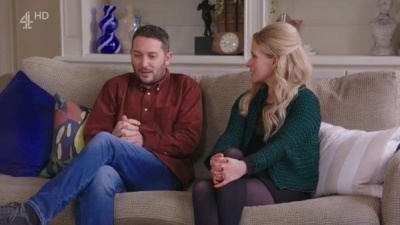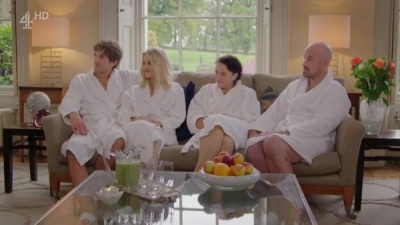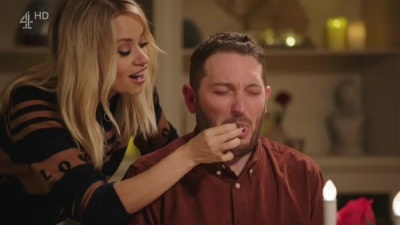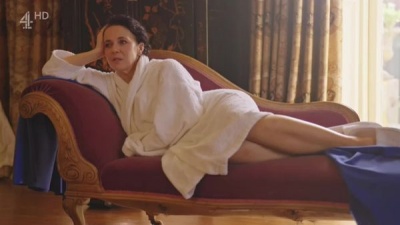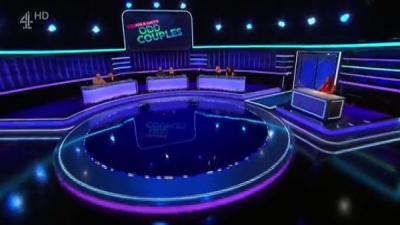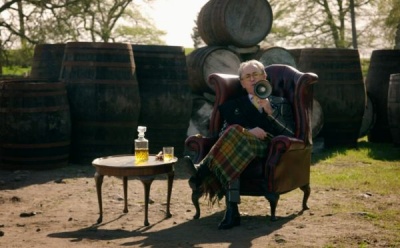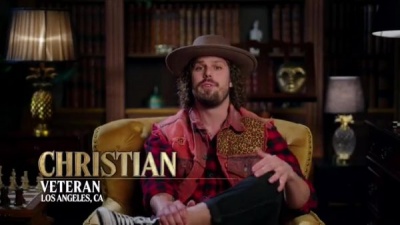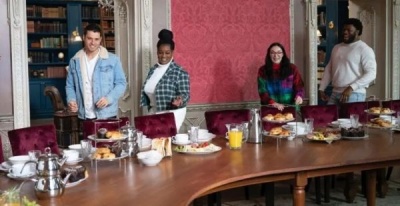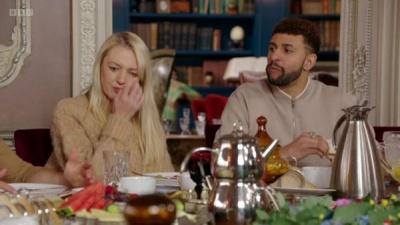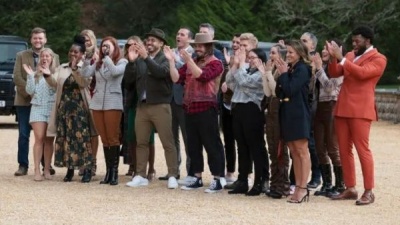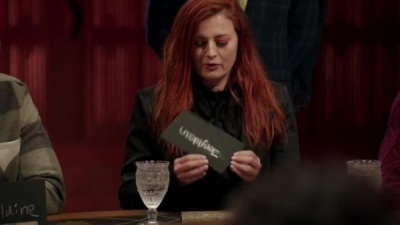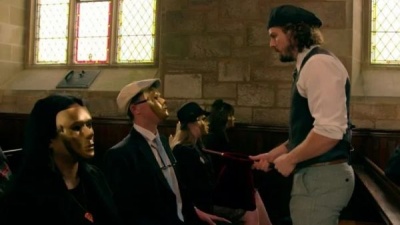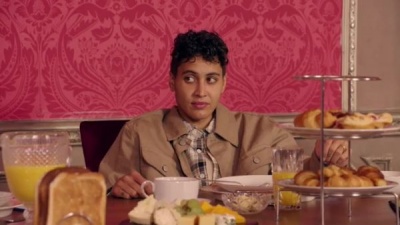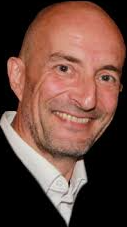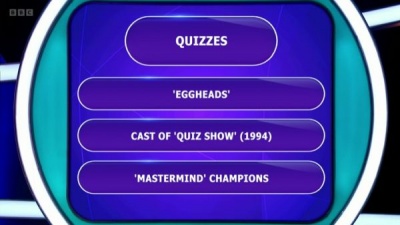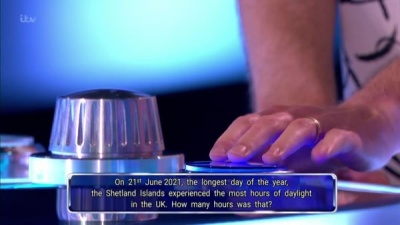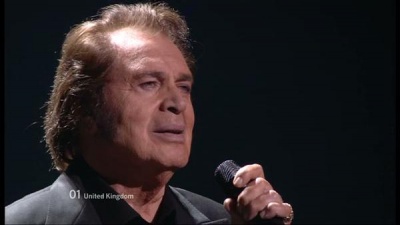Weaver's Week 2023-02-12
(Created page with 'Last week | Weaver's Week Index | Next week Two celebrity couples are invited to a weekend away. They…')
Newer edit →
Revision as of 11:33, 12 February 2023
Last week | Weaver's Week Index | Next week
Two celebrity couples are invited to a weekend away. They're given things to do, filmed, and then discuss what happened with Jon Richardson and Lucy Beaumont. That's on
Contents |
Jon and Lucy's Odd Couples Therapy Session
King of Sunshine Productions for Channel 4, 13 January – 10 February
Each episode is slightly different, so we'll follow a sample edition. It's from 3 February, with Kimberly Wyatt and Amanda Abbingdon, and their husbands.
The show's hosted by Jon Richardson and Lucy Beaumont. Not only are both established comedians, but they're a married couple in real life. Work together, live together, bicker in front of the cameras.
Where did the idea for Odd Couples come from? A skit on their programme Meet the Richardsons, on the Dave channel. The joke was that they hosted a Channel 4 programme called Couples Therapy that gave couples things to do and made light of the results. Odd Couples is completely different from that sketch, as the show has a different title. Well, it does now – the first episode went to the TV Times under the name Jon and Lucy's Couples Therapy.
Whatever it's called, the show also features Charlene Douglas, who is a professional relationship coach. We see a filmed insert, of the contestant couples – and of Jon and Lucy – talking to Charlene about their weaknesses. Because it's meant to be a spa retreat, the contestants are wearing dressing gowns over their clothes.
Did the men fail to recognise they have any weaknesses? Is this a genuine observation, or is this a piece of comedy? And is there going to be anything approximating a game show here?
Ah, a "lie detector" test. A real polygraph machine, which might be able to measure changes in heartbeat and blood pressure, could possibly detect changes in stress levels, but almost certainly isn't able to determine if someone is telling fibs. This entertainment machine is only suitable for the most low-stakes sort of show, like this, and unlike The Jeremy Kyle Show.
One is all that a team can score, there's just one point for the team who managed to fool the polygraph the more. All of this takes about 18 minutes of television time. It feels longer, this section drags on and on and on.
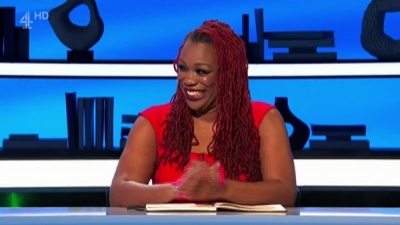 In the studio, Charlene Douglas. She has a few points in the opening segment, then vanishes until the end.
In the studio, Charlene Douglas. She has a few points in the opening segment, then vanishes until the end.
"You've Really Done a Number on Me" is a bit like Distinctly Average on House of Games (3), with one twist. Jon gives a question, such as "What percentage of women rated physical attraction as the most important thing they look for in a partner?" Here comes the twist: the couple can confer before giving their average. One point for whoever's closer to the answer Jon has on his card.
In other shows, they've had "complete the statement" questions posed by the couple's family members. Whatever game they play, whether Blankety Blank or The Control Question From Play Your Cards Right, it's one point for winning the round.
What's next? A date with one of the hosts. According to Charlene, it's a chance to bring out the couples' romantic side. According to us, it's a bunch of minor celebrities who we really don't have much connection with, acting in a very genteel and upper-class simulacrum of Love Island.
The teams have brought along something from home to sum up their relationship. It's an excuse to talk about things, find out a little more on the relationship. Maybe set up or develop some jokes – although it's 30 minutes into the programme, a bit late to set anything up.
Next up, an audition for Celebrity Portrait Artist of the Evening. One of the couple has 15 minutes to paint or sketch or draw the other person. In other shows, they've tried to write poetry about each other, with rhyme and scansion. On other channels, look, Love Island is on, and we might be less bored by that load of relationship nonsense.
Speaking of nonsense, the show ends with an in-studio round with the polygraphs. Winners get a bespoke joke prize, losers get their appearance fee.
There's a lot of dark humour on the show. "The Retreat. A place for couples to rediscover what made them fall in love in the first place. Or to finally admit they've got nothing in common, cut their losses, and divorce." But there are so few guffaws, titters, or sniggers. We can't call this show a comedy, it failed the six laughs test. When Jon finally says "Tonight's winners are," our final thought is "thank goodness".
Odd Couples is an interesting idea. Seeing what couples are like in interesting situations can make for mildly entertaining television. For us, the problems are that a) these aren't particularly interesting situations, and b) Jon and Lucy never take anything seriously. Reverse parking a car? We can watch that out of our living room window during the school run, with the added possibility of pay-to-view boxing from irate parents. And the hosts seem to undermine the premise of their own show. The result is forced television, it doesn't come across as genuine or spontaneous.
There may be a few laughs to be had on Odd Couples, though nowhere near as many as the audience cheer for. It's likely that there's an audience for this show, people who are interested in relationships and don't want Love Island and everything it entails. Such an audience does not include this column.
NBC's The Traitors
BBC3, 24 January – 8 February
The Traitors NBC has finished on BBC3. It was filmed at the same Scottish castle as the BBC1 version we saw late last year, and repeated many familiar elements. The host wasn't one of them: Claudia Winkleman was replaced by Alan Cumming, he eventually defined the host's role as an eccentric laird, with hints of the Raven character and at least one The Crystal Maze host (though we couldn't quite tell which).
We watched the series on BBC3: one episode each night, with a long weekend break after eps 3 and 7. It's similar to the pace on BBC1, and about as fast as we wanted to go. NBC released all ten episodes at once, which completely destroyed any way people could watch at the same pace *and* dodge spoilers.
We watched the series, we rather enjoyed it, though nowhere near as much as the BBC1 edition. This review contrasts the two editions and gives notes about what did and didn't work; we've tried to avoid specific spoilers.
Little thing, obvious thing. We got spoiled for name captions – consistent and meaningful throughout, and on screen all the time someone spoke. NBC's edition took captions down after a few seconds, and wasn't consistent within an episode – in one episode, we went from "Bill – Fresh Prince" to "Bill – Faithful" to "Bill – Green Team". Captions weren't always on screen – if they cut to some action, but the same person speaks, we weren't told who spoke.
We also saw a difference in the breakfast table. Where's the verdant edge? The green trails, and the little flowers? It looks weird bare, and even stranger with all the settings pushed to half of the table.
NBC released the first episode for all to see, later eps are only available through their Peacock subscription business. Was the first episode representative of the series? No. It concentrated on the "already famous" people, ten of the twenty contestants who had already taken part in observational and constructed-reality shows. NBC could be accused of a "bait-and-switch" tactic – they promise something, and don't honestly intend to deliver it.
By making the first episode so unbalanced, problems were stored up for later in the series. We can understand why the first person "murdered" wouldn't get much screen time. Later eliminatees needed to have been in the foreground before they were taken out, otherwise the decisions become baffling. One "murder" was to a player who meant a lot to the group, but this connection hadn't been established on screen because they'd focussed so much on the "celebs".
There's nothing wrong with the decision to bring in established names. There's everything wrong with some of the established names they brought in. Our notes from one roundtable: "When we look up 'sore loser' in the dictionary, that's the picture we'll see. Leave now, and never darken our television set again. Whoever you were." So many of these minor figures will have had to pay excess baggage fees on their personal sense of entitlement.
Another contender was quite clearly not there to play the game, but to boost their own brand. That player glowered over the whole series like a particularly dark raincloud of doom. A palpable sense of relief when they had finally been removed, but we suspect the gentle euphoria will have influenced the events later that day. Were the players so relieved to dispel the thundercloud that they lost focus on who the enemy really was?
In general, we found the NBC cast to be much more hostile and prickly than the BBC cast. Much of that will have been the people and personalities involved. Some of it may have been the host's approach – Claudia was always uplifting and gregarious, it was a world of tea and scones and drinks and comfort. Alan seemed to be more muted, his was a more spartan and less luxurious castle. And he didn't follow through on his pledges – Claudia delivered a heartwarming scone, Alan's guests were never seen with the promised refreshing nip of Scotch.
NBC episodes ran about ten minutes shorter than the BBC's. Mostly, they cut out chat amongst the group. NBC's episodes were all at format's four corners – breakfast, mission, roundtable, traitor tower. The BBC added in debriefs and discussion after each item, particularly after the mission and roundtable. By its absence, we realise how much space this gives the show to breathe, time to gently draw us in and let the viewer relax a little.
A producer can end an episode at the crunch of the roundtable, before or after the circle of truth defines "faithful" and "traitor". You could start each episode with the traitors gathering in their tower, or – like the BBC did – after their conclave without saying who is leaving. NBC was inconsistent about where they stopped episodes. They left themselves with a very long final episode, the denouement to the penultimate roundtable and everything after. Final episodes should not be a slog, final episodes should not be half as long again as other eps.
The missions were familiar – with a shorter series, they didn't play Hunt The Sheep, they didn't play Rickety Bridge, and they didn't play Test Drive probably because none of the players could drive on the correct side of the road. They played a new game, Spot The Difference – things change in a blacked out room, and the contestants' job is to find what changed. Felt like a wet weather replacement for another task, our guess is Hunt the Sheep.
But the missions were almost meaningless, as money lost in the earlier challenges was all available in the final day. The winners were assured traitorgeld to the value of USD 250,000 (then € 236.400, £200,000).
There is a "trial" situation, there is no murder on the final night, and there is an ending. The ending was fascinating, the rulebook was scattered to the winds, and it reminded us less of the BBC finale and more of ITV2's Killer Camp last year.
The editing was as sharp as on the BBC series, as we might expect being from the same production company; we get the feeling that episode end points were determined quite late in the process. Peacock takes commercial breaks, BBC3 doesn't, and the pickups after adbreaks were skilfully edited around. The soundtrack was different from the BBC, no gothpop covers of familiar songs, more heavy rock music that's so obscure it doesn't even feature on other wikis.
Turns out that The Traitors has been successful enough for NBC to order another series, and apparently this will be all civilians without any of the entitled wannabes. Good. Some episodes were properly ruined by ego, and we reckon one bighead turned the course of the series.
In other news
Kit Hesketh-Harvey has died. Best known as one half of cabaret entertainment Kit and The Widow, and as an opera composer, the singer and comedian was a regular booking on Radio 4's panel shows like Just a Minute and My Music, where he played with a flamboyant and erudite style. Kit Hesketh-Harvey was 65.
Broadcast Magazine announced its awards this week. The trade magazine gives awards voted by the television industry, for the television industry – it's a measure of popular and buzzworthy and quality as assessed by peers. Moneybags won Daytime Programme, The 1% Club took awards for Entertainment Programme and International Sales.
Incredible scenes in Leeds, as Cillian McMulkin creates Countdown history. He's managed to achieve a score of 154, tying the one-show record set a few months ago by Tom Stevenson. We'll meet Cillian again during Finals Week in the summer.
Limitless Technical Loss The ultimate all-or-nothing game of Limitless Win last weekend, Troy and Tracey-Jane could collect £500, or try to answer one question correctly for £1.25 million. Almost every question, the players had been literally one or two under, and they had to be spot on to remain in play. The fact that a team's facing a record win had been billed and trailed and teased throughout the series, and yet it didn't feel at all genuine or dramatic. Not when compared to The Traitors, nor even to a team on this show deciding whether to abandon £50,000 and play on for £250,000.
We want Ant and Dec to have a really successful big money quiz, show they're not just light entertainment titans. At the moment, Limitless Win is not it. The question material is good, it's accessible and everyone watching can have an opinion on most questions. We appreciate the new set, and seeing where the lifelines are. But the reveals are just negative: so many ways to lose. "One over is game over", so people play with caution, and it means almost every question is going to be a mini-failure. This week's contestants took the flaw to its logical extreme, constantly talking themselves out of exact answers.
Some have suggested that players are allowed a small error without affecting your overall lives. The idea's borrowed from some forms of chess: you might have 3 lives per question, and a bank of 20 lives for errors beyond that. If you're 9 over on a question, dip into the bank by 6 lives, and if the bank runs out, you're out. A huge chunk of strategy, too: after an exact answer, you can increase your bank by 5, or the allowed error by 1.
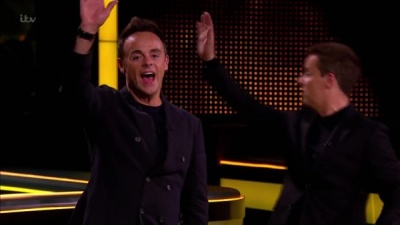 Saturday Night Takeaway will return... but will this show?
Saturday Night Takeaway will return... but will this show?
Euroadministrivia BBC2 showed the allocation draw for the Eurovision Song Contest. Hosted by Rylan Clark Neal and AJ Odudu, the draw matched broadcasters to the Tuesday or Thursday semi-final, and determined first or second half for those competing. They also introduced the year's logo, and had a brief video introducing where Eurovision actually is ("Arcade", "Snap", Måneskin) and not where it isn't ("Waterloo", Bucks Fizz). Looks like the BBC has finally got the message about dewoganification, and we're very pleased about that.
Other events organisers might take lessons from this event. It could have been intensely dull, managed to be brisk and pacey, kept the tempo and the energy high. Rylan drew out scrolls that were simple to unwrap and easy to read, far more televisual than slips of paper in small plastic balls welded with Superglue™; please take notes, FIFA.
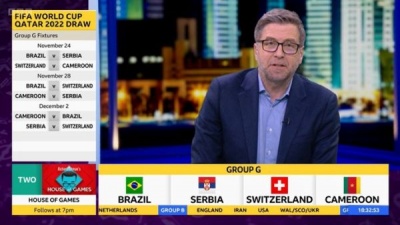 After Richard Osman unexpectedly got into the World Cup, lizards went as king of the jumble, Cameroon was distinctly average, and where is Kazakhstan?
After Richard Osman unexpectedly got into the World Cup, lizards went as king of the jumble, Cameroon was distinctly average, and where is Kazakhstan?
Much ink was spilled in January when RTÉ announced the performers who would compete in their "Eurosong '23" competition. One of them was John Lydon, the erstwhile punk rebel and member of The Sex Pistols. Lydon was the lightning rod, a big name to attract attention from casual fans, like Dustin The Turkey or Scooch in their day. But it's no longer the late aughts, and the public sees through tuneless novelties; Lydon's band failed to win the selection. The winners were rock band Wild Youth, and we'll discuss their song in about a month's time, along with entries from Anglophone broadcasters and selected others.
In With a Shout We take our thrills where we can, and that includes the Press Release Drinking Game. Take a swig whenever someone sends in a press release saying their show is "high octane". Makes the day go so much faster.
So we were delighted when ITV said, "Joel Dommett is to host a brand new high octane game show, produced by Expectation, where contestants are challenged to shout at the TV to win a fortune." Families shout out the answers to win a prize; strikes us as a primetime version of Per Seconde Wijzer, the Dutch "match things to clues" quiz matched with the endgame from Remote Control. Anyway, In With a Shout will come to ITV/STV/UTV later in the year. BBC Studios hope to distribute the format internationally.
What is a "high octane" thing anyway? It can withstand a lot of compression before it ignites, so we look forward to seeing Joel Dommett squashed under a heavy weight and then springing back to his usual shape.
Bad Tempo 2020: Schlag den Brig III features a game where songs are played, starting at a horrible tempo and gradually approaching the right one. The players turn out to be brilliant at it. 2023: That's My Jam features a game where songs are played, starting at a horrible tempo and gradually approaching the right one. The players are – er – less good than Dan and Nick.
This fortnight we learned
- Superannuated Eurovision singer Engelbert Humperdinck took his name from a German-language opera composer. It's not clear if Humperdinck met Humperdinck in his youth, or in Humperdink's youth. (University Challenge)
- Just 61 seaside piers remain around the coast. So, if he plans his travel carefully, Jason Donovan can cover them all in a summer. (House of Games)
- Bertrand Russell once had an "intellectual" argument where he asked someone to prove there are no teapots in space. But there's always a teapot in space: look for Sagittarius and go a bit up. (Only Connect)
- The only Eggheads known to the general public are Barry Simmons, CJ De Mooi, Judith Keppel, and Kevin Ashman.
- The only Mastermind champions known to the general public are Fred Housego, Shaun Wallace, Gary Grant, Aidan McQuade, and Chris Hughes. (Pointless)
(In that final, the Week went for Beth Webster of Eggheads, and Mastermind winners Nancy Dickmann and Ian Bayley from the memorable 2009 final. We resisted the temptation to say "Pat Gibson" for both categories, we would have won a double jackpot.)
Quizzy Mondays
Mastermind saw wins for James Davidson (films of Nicole Kidman) and Anna Milford Goldstein (great fire of London). The latter match included a perfect specialist round from Zahir Kazi on John Barnes, but the contender's general knowledge wasn't enough for the win.
Only Connect put the Morporkians and Scrummagers into the semi-finals. Morporkians beat Mothers Ruined by 16-12, a very cagey match was eventually decided by Missing Vowels. Scrummagers scored more than one in Connections, the first time that's happened – their spot of Othello and Iagos was our Get of the Night. It was one-way traffic after, 28-15 the final.
Jesus Cambridge and Imperial London won their second-round matches on University Challenge. Jesus beat University Oxford by a distance, it's almost impossible to recover from 90-0 down. Jesus buzzed strongly, and showed broad knowledge on their bonuses. That could be a winning combination. Imperial beat Newcastle in a One Starter Shootout, their 90-0 lead had evaporated and turned into a slim Newcastle advantage with a few moments to play. That's one of the games to savour.
We were sorry to read that Tom and Yvonne have decided to discontinue their I Got That One! podcast about University Challenge. Making a podcast takes time; making a great podcast takes more time than we listeners can imagine. Thanks to the couple for the two-and-a-half years of running commentary, and we're sure that the English Geography Nerd from last series raises a glass to you.
The Piano A new series from Love Productions for Channel 4. Talented pianists plink their plonks at train stations – St Pancras, Birmingham New Street, Leeds City, and Glasgow Central. Lang Lang, the famous pianist, will pick out one pianist at each site and reward them with a gala performance in London's Festival Hall. Not sure if the final will be graced by Jane Campion. Or, indeed, by Paul Sinha, who put a very similar idea into the world back in 2016. The series begins on Wednesday.
Great news for all sketchers, Best Young Artist is back (CBBC, from Mon). Antiques Road Trip starts rolling again (BBC1, from Mon), and a new series of Breaking the News (Radio Scotland, Fri).
BBC Scotland gives us Scotland's Greatest Escape (Wed). A new judge on the new series of Home of the Year on RTÉ1 (Tue). Starstruck is back next Saturday (ITV), Susan Calman's on Bridge of Lies (BBC1), Rachel Stevens is on Stephen Mulhern's Celebrity Catchphrase with Stephen Mulhern (ITV), and it's the final of The Masked Singer (VM1 and ITV). And we wonder if anything will happen to mark Popmaster's silver jubilee (Radio 2, Thu).
Picture credits: King of Sunshine Productions, Studio Lambert Scotland, Remarkable (a Banijay company), Hello Dolly / Mitre Studios, BBC Sport, EBU/Íctimai/BBC.
To have Weaver's Week emailed to you on publication day, receive our exclusive TV roundup of the game shows in the week ahead, and chat to other ukgameshows.com readers, sign up to our Google Group.


